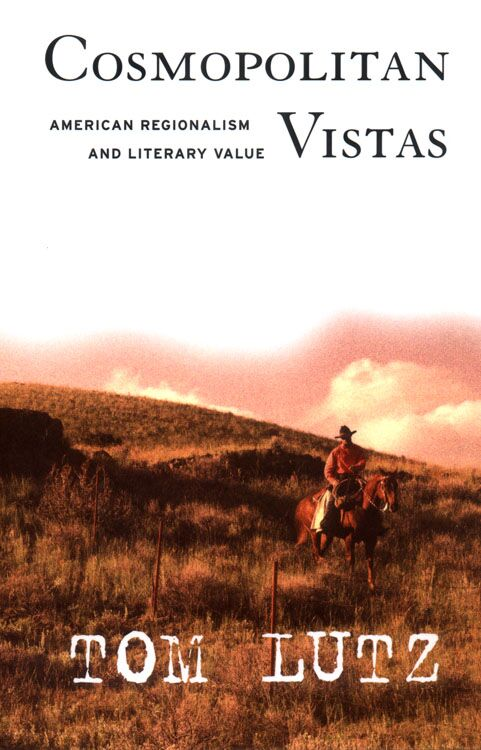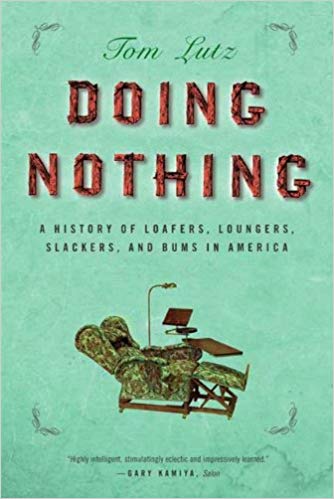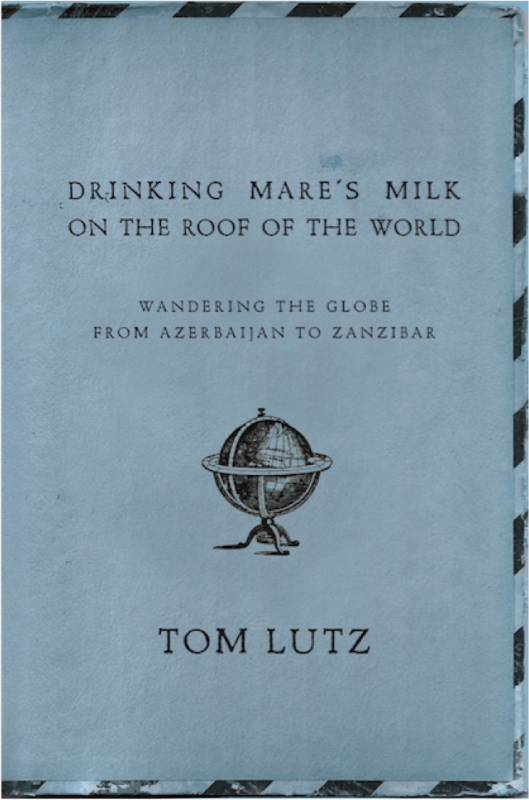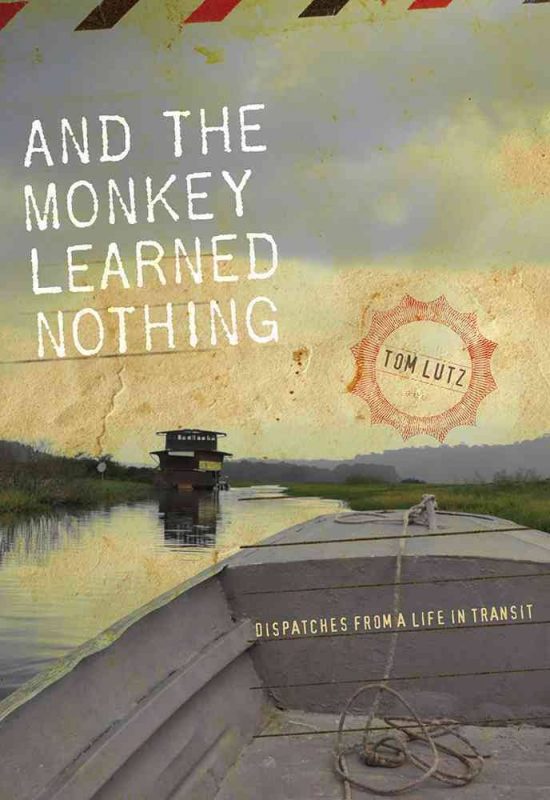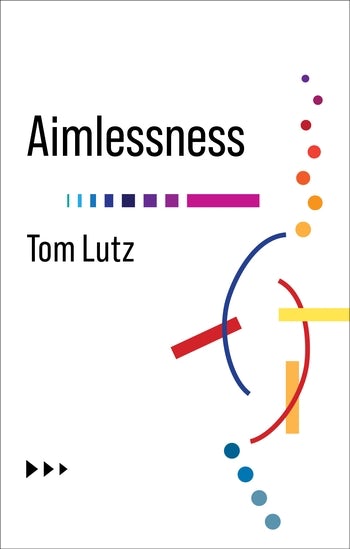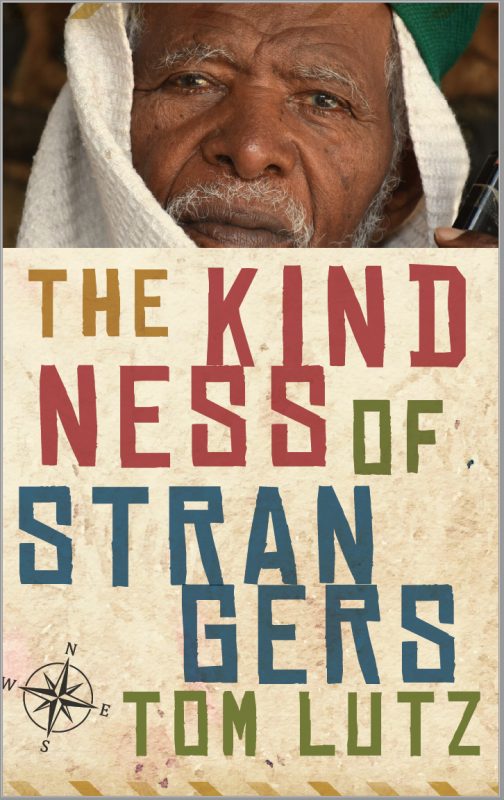Portraits: Moments of Intimacy on the Road
Each of these photographs is a testament to the human ability to connect across the fault lines that keep us precariously divided. And each is a tribute to the kindness of strangers and the accidental intimacy of the road.
More info →Crying: The Natural and Cultural History of Tears
A history of what philosophers, poets, scholars, scientists, anthropologists, and sociologists have said about tears, tracing the changing meaning of tears throughout the years and across the continents.
More info →American Nervousness, 1903: An Anecdotal History
Hysteria, insomnia, hypochondria, asthma, skin rashes, hay fever, premature baldness, inebriety, nervous exhaustion, brain-collapse—all were symptoms of neurasthenia, the bizarre psychophysiological illness that plagued America's intellectual and economic elite around the turn of the century.
More info →Cosmopolitan Vistas: American Regionalism and Literary Value
In a major statement on the relation of art and politics in America, Tom Lutz identifies a consistent ethos at the heart of American literary culture for the past 150 years. Through readings of Sherwood Anderson, Willa Cather, Hamlin Garland, Ellen Glasgow, Sarah Orne Jewett, Sinclair Lewis, Edgar Lee Masters, Claude McKay, Edith Wharton, Anzia Yezierska, and others, Lutz identifies what he calls literary cosmopolitanism: an ethos of representational inclusiveness, of the widest possible affiliation, and at the same time one of aesthetic discrimination, and therefore exclusivity.
At the same time that it embraces the entire world, in Lutz's view, literary cosmopolitanism necessitates an evaluative stance, and it is this doubleness, this combination of egalitarianism and elitism, that animates American literature since the Civil War. The nineteenth century's realists and sentimentalists, the writers of the Harlem Renaissance and of the Southern Renaissance, the firebrands who brought in the new canon and the traditionalists who struggled to save the old all ascribe, Lutz argues, to the same cosmopolitan values, however much they disagree on what these values demand of those who hold them.
More info →Doing Nothing: A History of Loafers, Loungers, Slackers, and Bums in America
Drinking Mare’s Milk on the Roof of the World: Wandering the Globe from Azerbaijan to Zanzibar
As I attempt to visit every corner of the globe, on an obsessive quest to go everywhere, I have tried to figure out why—what drives me toward the unknown, what pushes me down the most obscure roads I can find, what is this compulsion, this wanderlust, all about?
More info →And the Monkey Learned Nothing: Dispatches from a Life in Transit
And the Monkey Learned Nothing is my second volume of travel writings, a sequel to Drinking Mare's Milk on the Roof of the Word. The third and fourth volumes are on their way.
More info →These “Colored” United States
Originally published in The Messenger, these essays are collected here for the first time, and include pieces on their home states by Wallace Thurman, Anita Scott Coleman, Alice Dunbar-Nelson, Charles S. Johnson, E. Franklin Frazier, Wallace Thurman, & George Schuyler.
More info →Aimlessness
Our culture values striving, purpose, achievement, and accumulation. This book asks us to get sidetracked along the way. It praises aimlessness as a source of creativity and an alternative to the demand for linear, efficient, instrumentalist thinking and productivity.
Aimlessness collects ideas and stories from around the world that value indirection, wandering, getting lost, waiting, meandering, lingering, sitting, laying about, daydreaming, and other ways to be open to possibility, chaos, and multiplicity. Tom Lutz considers aimlessness as a fundamental human proclivity and method, one that has been vilified by modern industrial societies but celebrated by many religious traditions, philosophers, writers, and artists. He roams a circular path that snakes and forks down sideroads, traipsing through modernist art, nomadic life, slacker comedies, drugs, travel, nirvana, and oblivion. The book is structured as a recursive, disjunctive spiral of short sections, a collage of narrative, anecdotal, analytic, and lyrical passages—intended to be read aimlessly, to wind up someplace unexpected.
Disocunt code CUP@) gives 20% off at Columbia UP site.
More info →The Kindness of Strangers
Once again, Tom Lutz takes us to seldom-traveled corners of the world to bring us random reports of human kindness.
More info →







